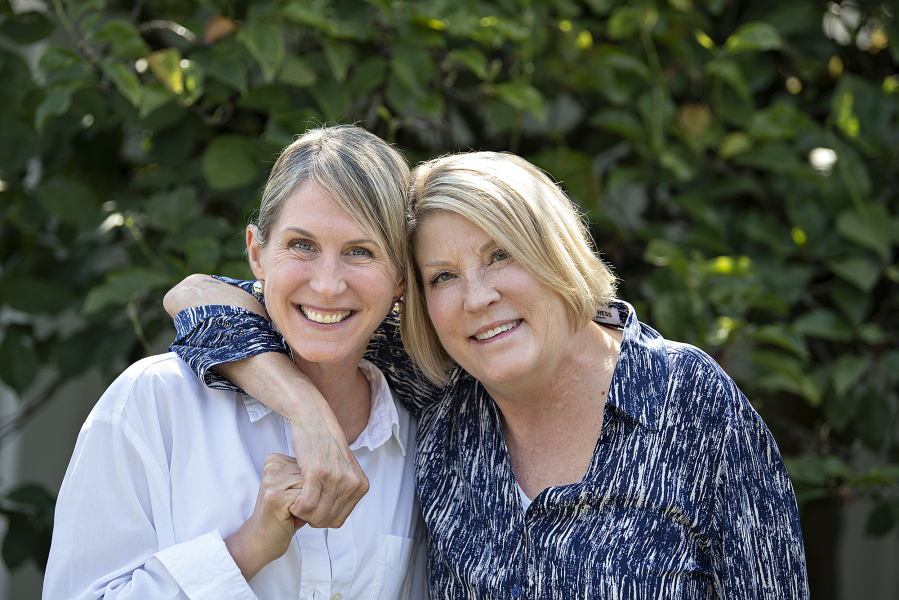Thirty years ago, Debbie Lein popped her head through the window of Janet Lyons’ SUV and asked if she wanted to be her friend.
The two have been inseparable ever since, sharing everything from memories and laughs to a kidney.
Recently, the two friends threw a party in celebration of not only their friendship but the 10-year anniversary of the surgery that helped save Lein’s life.
“It’s an overwhelming feeling to have a friend that would actually give you life,” Lein said.
‘Sign me up’
Lein, who lives in Vancouver’s Fisher’s Landing East neighborhood, has polycystic kidney disease, an inherited disorder that her mother passed on to her and evidently died from. Her brother also has it, and lives on dialysis after getting his kidneys removed.
It’s a slow-growing disease, yet nearly half of those with the disease have kidney failure by age 60, according to the Mayo Clinic.
“You get cysts on both your kidneys, and then the cysts grow bigger and bigger until they block the function. That’s when you have to go on dialysis or wait on the list for a transplant,” said Lein.
Eleven years ago, Lein’s doctor said that her kidney function was at an all-time low. She was told to start considering her options. Not wanting to go the dialysis route, Leins told Lyons she was going to start looking for a donor.
“Immediately, I go, ‘Sign me up. What do I have to do to see whether or not I’m a viable donor?’ It was never a question of whether I should do it or not,” said Lyons.
Lyons underwent extensive testing throughout her entire body from blood to teeth. It was determined she was a match.
Before they knew it, the two were off to surgery — with the same doctor that performed Lein’s mother’s kidney surgery in the 1980s.
“I just remember being so emotional that day. Not sad emotionally but more emotionally excited and overjoyed it was all happening,” said Lein.
The pair nicknamed the kidney Coolio, in memory of a 1997 night the late rapper gave them a ride home after Lyons locked her keys in her car.
“We always say Coolio saved our lives that night,” Lein said jokingly. “So we named our kidney after him.”
Need for donations
Every 14 minutes, someone is added to the kidney transplant list, according to the National Kidney Foundation.
Kidneys are the most needed transplanted organ, with more than 100,000 people in the United States waiting for one. About 20,000 transplants are performed each year.
Annually, nearly 5,000 people on the transplant waiting list die without getting a transplant.
“I always say that it’s not amazing (for me to donate) my kidney; the amazing part is that I had a best friend who needed a kidney, and then that I would be a match to my best friend. That’s the miracle,” said Lyons.
Although Lein echoes that she is lucky to just be alive and have a healthy kidney, she still needs to take precautions for post-transplant health vulnerabilities. The anti-rejection medication she has to take because of the donation caused her to have skin cancer and diabetes — common complications of the treatments.
Lein and Lyons both said there needs to be improvement with the medication donor recipients need to take.
“But I’m alive. That’s all that matters,” said Lein.
Lyons said those considering being a donor shouldn’t fear the aftermath; donors can still live an ordinary life after donating a kidney. She said although it’s invasive surgery, her life hasn’t changed except being cautious around X-ray machines and ibuprofen. But Lyons said she would do it all over again.
“If I had five more kidneys, I would do it five more times,” said Lyons. “She’s my sister. Literally now, she has my DNA.”




